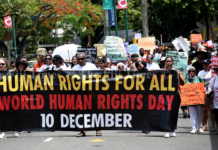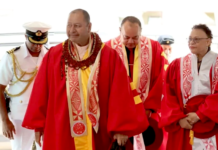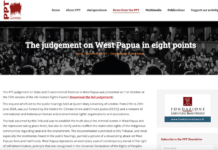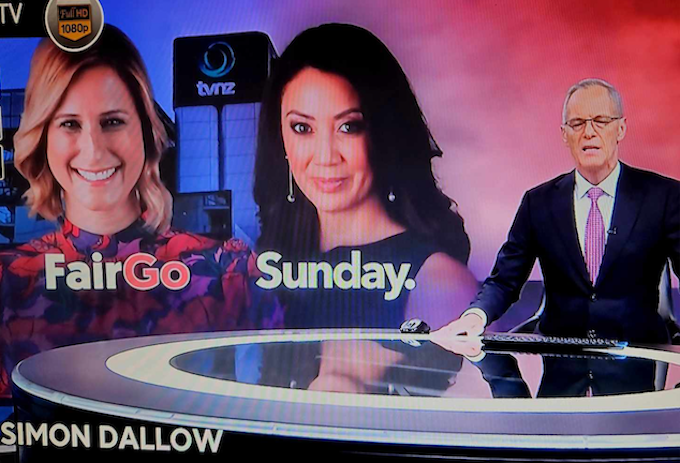
Television New Zealand is proposing to axe its long-running and award-winning current affairs programme Sunday, hosted by veteran broadcaster Miriama Kamo.
It is part of plans to cut dozens of jobs at the public broadcaster.
Staff were learning which programmes will be affected at a series of meetings today.
- READ MORE: TVNZ to cut up to 68 jobs in restructure – ‘dire for democracy’
- Other TVNZ and Newshub reports
TVNZ said a proposal had been presented to Sunday staff which could result in cancellation of the programme.
The show was named Best Current Affairs Programme at the Voyager Media Awards and the New Zealand Television Awards last year.
It first aired in 2002 and has run for more than two decades, showcasing a mix of New Zealand stories and reports from overseas.
One award-winning investigation looked into the 2008 Chinese poisoned milk scandal, and how patients were treated at Porirua Hospital.
Veteran journalists like John Hudson, Janet McIntyre and Ian Sinclair have contributed to the show.
News bulletins may be canned
RNZ understands the 1News Midday and Tonight bulletins may also be canned, and consumer affairs programme Fair Go could to be cut too.
Its understood four out of 10 roles at youth platform Re: News are set to go — head of Re: News, head of content, production manager, and a journalist.
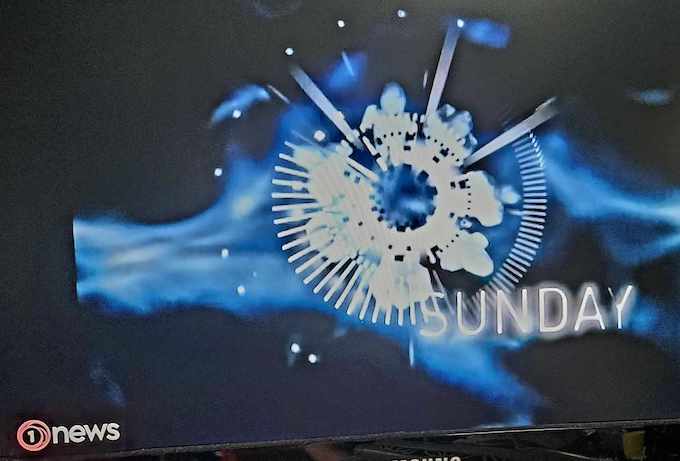
Its understood four out of 10 roles at youth platform Re: News are set to go — head of Re: News, head of content, production manager, and a journalist.
The remaining five staff will have a change in reporting line, reporting to TVNZ digital news and content general manager Veronica Schmidt.
RNZ has been told there will be a shift away from social media in a bid to drive more traffic to the Re: News website. Its documentary series funded by NZ On Air is also set to be canned.
The digital media platform was launched in 2017 as a current affairs platform aimed at audiences under-served by mainstream news.
It produces documentary videos, articles and podcasts particularly relevant to youth, Māori, Pasifika, rainbow communities, and migrant and regional audiences.
The platform won four awards at last year’s Voyager Media Awards, including best news, current affairs or specialist publication; video journalist of the year; best video documentary series; and best original podcast — seasonal/serial.
On average, Re: News receives more than a million video views each month.
Difficult choices
TVNZ chief executive Jodi O’Donnell said in a statement that difficult choices had to be made to ensure the broadcaster remained sustainable.
It comes just a week after rival Newshub announced it had proposed to axe its entire news operation of 300 staff.
A hui for all news and current affairs staff is due to be held at 1pm, following the individual programme meetings.
Prime Minister Christopher Luxon, speaking at a press conference in Whangārei, said he was concerned about reports of job cuts and that it was a “pretty tough time if you’re a TVNZ employee”.
Luxon said consumers are consuming news in different ways and advertising and revenue models are changing.
He said it was a pretty tough time for people working in the media but he had travelled the country and many other sectors were doing it tough.
Media companies needed to evolve and innovate in order to adapt, he said.
Fair Go
Fair Go is one of New Zealand’s longest running and most popular television series.
The consumer affairs show, which investigates complaints from viewers, first aired in April 1977 and is just shy of its 47th birthday.
During a 2021 interview with RNZ’s Afternoons programme, original host and creator Brian Edwards said he was inspired by a BBC programme called That’s Life.
“One particular segment was on consumers and I think that was the germ of the idea, that we could do a programme in New Zealand where we could look at protecting people right there in their normal daily lives from rip offs and scams by various people and it it just soared from the beginning. I mean, it was tremendous,” Edwards said.
“I suppose my main function was to grill the villains, and because I’m a really quite unpleasant person, this fit in my my personality very well.”
Well-known presenter Kevin Milne hosted the show for almost three decades, from 1983 to 2010.
“It was beautifully set up, really, and it didn’t require any change as much and still hasn’t, you know, 44 years later,” he told Afternoons during the same interview.
‘Good deal of cynicism’
“I remember that there was a good deal of cynicism in the early days from the newsroom journalists who thought that because there was an element of entertainment on the show that you couldn’t call it real journalism, which was nonsense because it ended up leading the way in terms of investigative journalism.”
The show broke new ground, Milne said.
“It’s hard to believe now that back then, at the time when Brian set up those programmes, most broadcasters never named names. I can remember now hearing news stories which could say a well-known department store in Lambton Quay appeared in court this morning. No mention [of name], and when Fair Go started up, it was decided it would name names.”
Edwards said that was an “absolutely critical” aspect of the show.
“The thing would have been pointless I think, if you couldn’t name names. The thing was to expose the wrong doers if you like . . . what was the point in in doing that if you couldn’t name names?
“And I think we probably, together, our team, won some battles there and being able to do that. It took a while and I think there was a degree of nervousness by the broadcaster and eventually it turned out all right.”
This article is republished under a community partnership agreement with RNZ.








